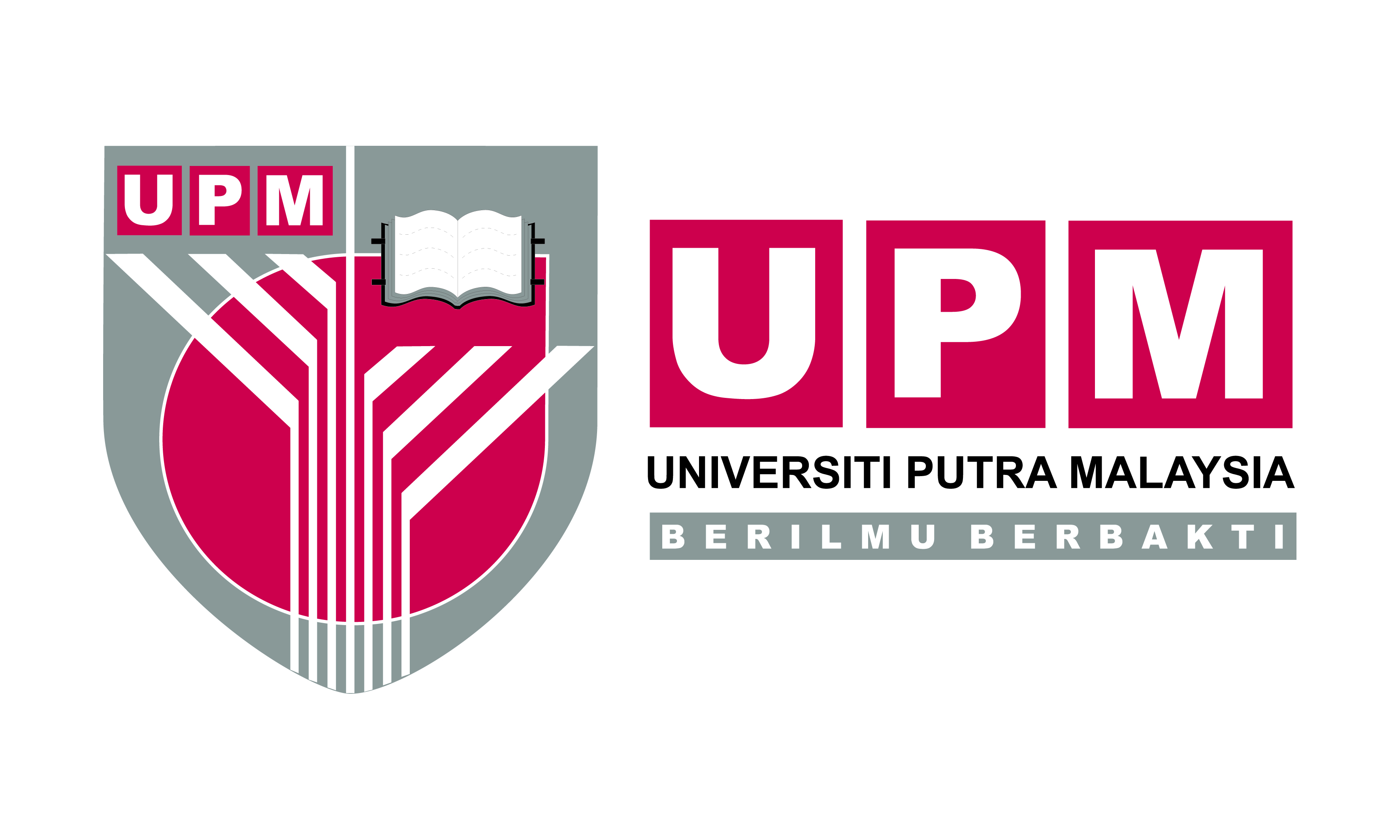By Azman Zakaria
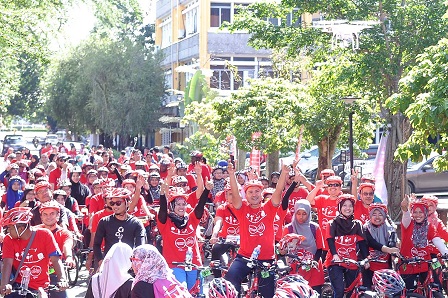
SERDANG, Nov 21 - Universiti Putra Malaysia (UPM) has now turned “greener” through the “Recycle To Cycle” (R2C) programme initiated by the university and Coca-Cola Malaysia.
Following the introduction of the campaign about three years ago, UPM has significantly reduced the number of buses plying the routes within its campus, with most of the buses now powered by NGV.
It also encourages its students to use bicycles or walk to academic zones by introducing a special scheme in collaboration with UPM Cooperative (KUPUTRA) where the latter could purchase a bicycle through an instalment payment scheme.
“As a green campus, we are pleased with the outcome of the Recycle To Cycle activities that have contributed towards the reduction of carbon emission.
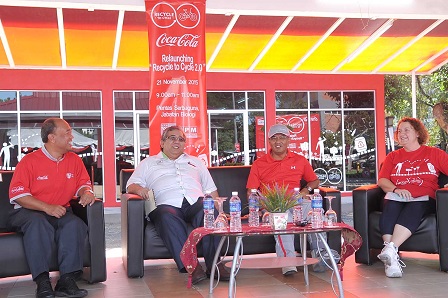
“We are very serious about having a green campus and this is another positive step forward,” UPM Vice-Chancellor Professor Dato’ Dr Mohd Fauzi Ramlan, said at a Recycle To Cycle programme officiated by Ministry of Natural Resources and Environment Deputy General-Secretary (Natural Resources), Dato Dr Mohd Ali Mohamad Nor.
The fun and unique project had encouraged students to recycle, thus reducing carbon emission while adopting an active lifestyle.
This programme is the first of its kind to have been introduced in Malaysia where students could recycle PET bottles and aluminium cans in exchange for bicycles and safety helmets.
Coca-Cola Malaysia has acted as the catalyst to propel UPM to become a greener campus, with some 7,000 bicycles bought by students through the payment scheme.

The original fleet of 200 bicycles is still available for lease via the recycling mechanics, managed by UPM’s Department of Biology, which is headed by Prof. Dr. Ahmad Ismail.
General Manager of Coca-Cola Malaysia-Singapore-Brunei Region for the Coca-Cola Company, Ms Gill McLaren said seeing UPM turning into a green campus and the success of the R2C programme as part of its transformation programmes were heartening.
“Today’s event is a celebration of that success and we look forward to more collaborations that will help the environment and reduce mankind’s impact on it.

“We are proud to be part of UPM’s efforts to become the nation’s greenest campus and to see that it is being done in a way that can also promote physical exercise and active lifestyle,” she said.
The next phase of the programme will see recycle and emission reduction efforts intensified with the launch of “Red Cube”, an environmental-friendly build funded from the initial grant fromCoca-Cola Malaysia.
The Red Cube will feature a self-sustained rainwater harvesting system that flow continuously over the roof to cool the building along with fans and exhaust vents.
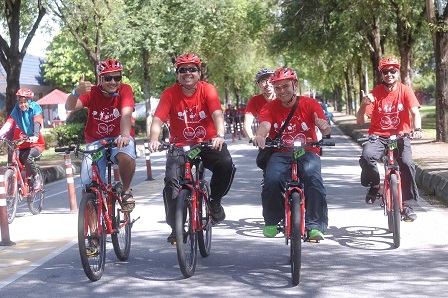
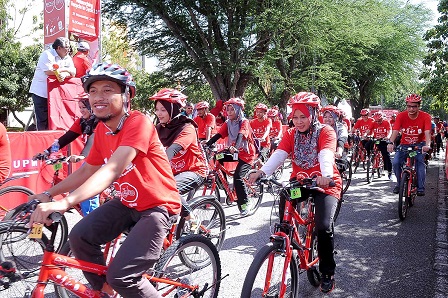
The Red Cube will feature a self-sustained rainwater harvesting system that flow continuously over the roof to cool the building along with fans and exhaust vents.
Other design elements that keep the building green include the specially-designed windows for circulation that take advantage of the natural air flow and complemented by plants outside the windows, to cool down the air and fully solar powered lights, fans and exhaust vents.
It does not consume any electricity and can be used as a student activity centre, with a capacity of 50 people within its flexible interior space.
UPM had also reorganized students’ accommodations so that they could stay closer to their respective faculty by providing sheltered walkways.UPM has long been recognized as a green campus with its verdant landscape of plants of various sizes and species.
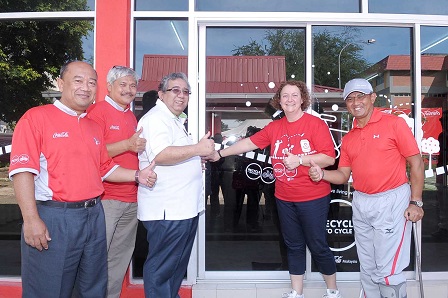
Besides the green environment, teaching and research, UPM also promotes green activities aggressively such as reducing motor vehicles on campus, providing bus services, encouragingstudents and staff to use bicycles, promoting programmes such as recycling, bio compositing, e-filing and a slew of other activities.
UPM has won many accolades in the category of Green Tech University and recognized as the leading university in green technology in 2012. Among its pioneer areas of focus are new energy, sustainability in research and development in communication, innovation and transformation of green technology. – UPM.
